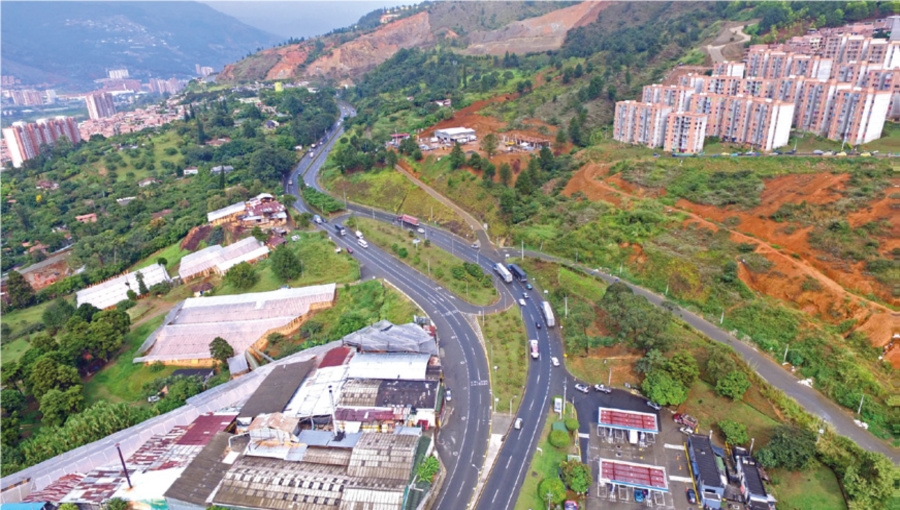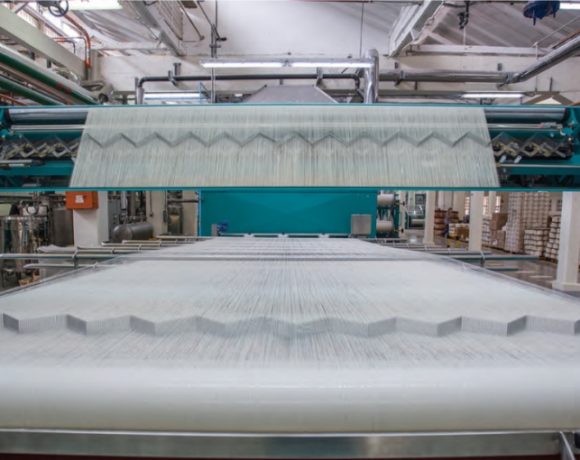Conconcreto Full-Year 2020 Net Income Drops 64% Year-on-Year

Medellin-based construction giant Conconcreto on March 1 reported a 64% year-on-year drop in 2020 net income, to COP$23.5 billion (US$6.5 million).
Earnings before interest, taxes, depreciation and amortization (EBITDA) declined 40%, to COP$102 billion (US$28 million), while revenues likewise declined by 39%, to COP$574 billion (US$158 million).
Despite the decline in profits, 2020 nevertheless “represents a positive year-end compared to that reported in third quarter 2020, and even more so considering that it reflects the negative impact that the Covid-19 emergency had on the company’s business plan and its investments,” according to Conconcreto.
Meanwhile, Conconcreto’s relatively solid cash position at year-end 2020 enables it to “comply with the financial indicators required to tender standard bidding projects and other [opportunities],” according to the company.
Among those is the recently awarded “Doble Calzada Oriente-DCO” public-private association highway project connecting Medellin eastward to Rionegro and portions of Envigado and El Retiro. For the DCO project, Conconcreto holds a 60% stake.
The DCO project, estimated at COP$926 billion (US$255 million), boosts Conconcreto’s construction backlog by approximately COP$300 billion (US$82.6 million), according to the company.
U.S. ‘Strategic Alliance’ Developments
Meanwhile in the U.S. market, Conconcreto’s “strategic alliance” with U.S.-based Century Asset Management has resulted in development of some 35,000 houses worth about US$6.5 billion., according to the company
The “strategic alliance” is now becoming an “asset manager” that will “manage the resources of its investors through investment funds for the development of rental housing projects,” according to Conconcreto.
“’Century Real Estate Fund I’ is the first fund of this alliance. It is currently in the capital raising stage and seeks to capitalize on the opportunity to invest in an environment of low interest rates, high demand for housing in Miami-Dade County and scarcity of land with permits in strategic locations, developing the Midtown Doral Multifamily project,” according to the company.
“The first project is two towers with a total of 326 apartments, located in the city of Doral, in Miami-Dade County. The first fund will be US$150 million in which Constructora Conconcreto will carry out the designs and execute the construction.”
Backlogs Growing
Aside from the new DCO project in Antioquia, the company’s backlog at year-end 2020 stood at COP$2.21 trillion (US$609 million), while the DCO and other new projects announced so far in 2021 bring the total backlog to COP$2.59 trillion (US$713.6 million), according to the company.
In total, 86.4% of the backlog corresponds to infrastructure projects, while the remaining 13.6% corresponds to buildings, including housing projects.
Infrastructure backlog values are mainly concentrated in the “Ruta 40” highway project, the “Transmilenio” mass-transit rail project in Bogota, the DCO project and the Hidroituango hydroelectric project in Antioquia.
As for building construction backlogs, these are mainly concentrated in the “Contree” and “Las Vegas de Comfandi” housing projects, along with the Century Homestead projects in the U.S., according to the company.
Hidroituango Lawsuit
In a PWC accountant’s note to the official 2020 earnings report, PWC cites the pending COP$10.5 trillion (US$2.9 billion) lawsuit brought by Medellin-based power giant EPM against the builders and designers of the US$5 billion “Hidroituango” hydroelectric project.
That lawsuit claims that Hidroituango’s builders and designers are to blame for a diversion-tunnel collapse in 2018 that resulted in hundreds of millions of dollars in physical damages and billions of dollars in lost power sales because of resulting delays of entry-into-service for the hydroelectric project.
Conconcreto has a 35% share of the “CCC Ituango” consortium in the Hidroituango project, PWC noted.
“Based on the analyses undertaken by the consortium, Conconcreto and its legal team consider that no solid arguments exist that would put blame on the consortium and its members for the [losses caused by the tunnel collapse] and therefore they don’t consider it probable that the consortium or its members would be found guilty. As a result, to date the company has not made any [special financial-loss accounting] provision,” according to PWC.
Meanwhile, the CCC Ituango consortium has filed for arbitration to settle the claims — to be overseen by the Medellin Chamber of Commerce, PWC noted.
















